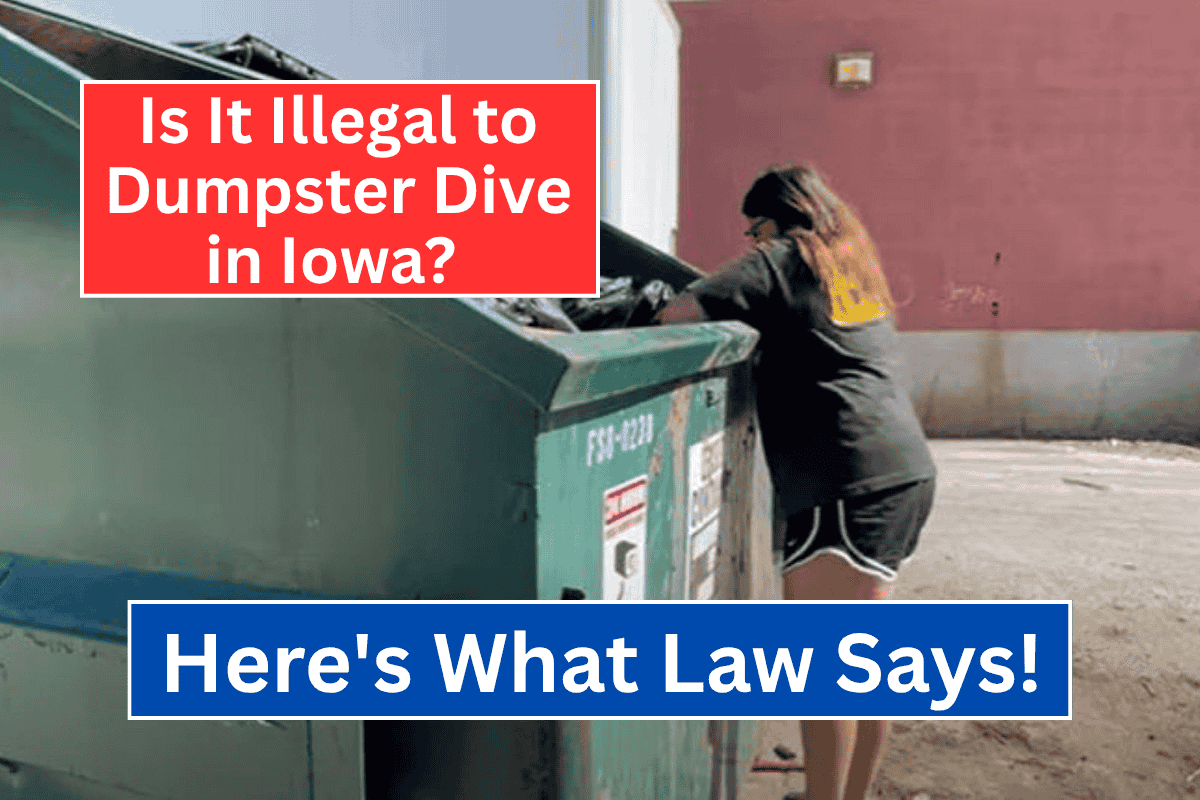Dumpster diving means looking through someone’s trash to find things to use, sell, or sometimes steal personal information. It might seem harmless, but it can cause big problems. This article explains what’s legal in Iowa and what could get you in trouble.
What Is Dumpster Diving?
Dumpster diving is searching through other people’s trash. People do it to find useful items, food, or to steal personal information. Papers with names, addresses, or account numbers can be dangerous if stolen. That’s why shredding is important.
Is Dumpster Diving Illegal?
Dumpster diving in public areas—like curbside bins—is usually legal in Iowa. Once trash is out for collection, the owner gives up privacy, and police can check it without a warrant. But check your local city or county rules.
What About Private Property?
Dumpster diving on private property—like behind stores, inside locked areas, or closed-off zones—can be trespassing or theft. If there are signs or locks, it’s illegal. You could get fined or even arrested.
Can It Be Disorderly Conduct?
Yes, in public you might be seen as disturbing the peace. If someone complains, you could get a ticket or be arrested for making a mess or being disruptive.
Do Recycling Bin Rules Apply?
Recycling bins might be different. Removing items like bottles or cans could count as stealing, depending on local rules. Be careful—what seems innocent could lead to trouble.
Why Do People Dumpster Dive?
People dumpster dive for many reasons.
They might look for items to sell, find food (especially in places with more waste), pick up electronics, or collect recyclable materials for money.
How to Protect Yourself
Shred private papers before trashing them. Keep trash bins off the curb until collection day. Watch for anyone acting suspicious and report it if needed.
Do Business Owners Have Resources?
Yes. Businesses can donate unsold food under the Good Samaritan Food Donation Act. This law protects them from liability, even if the food is near expiry.
Do You Need a Lawyer?
If you’re charged because of dumpster diving—especially on private property—it’s smart to talk to a criminal defense lawyer. Services like LegalMatch can help you connect with a local lawyer.
In Iowa, dumpster diving in public trash is generally legal. However, diving on private property or taking items from recycling bins can cause legal trouble.
Always follow local rules, be respectful, and destroy personal information before discarding it. If you’re ever in legal trouble over dumpster diving, a lawyer can help guide you. Stay safe and informed!












